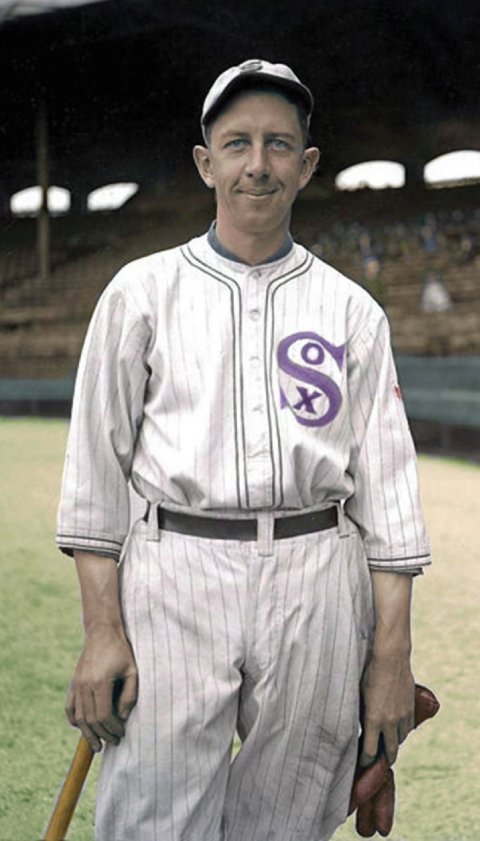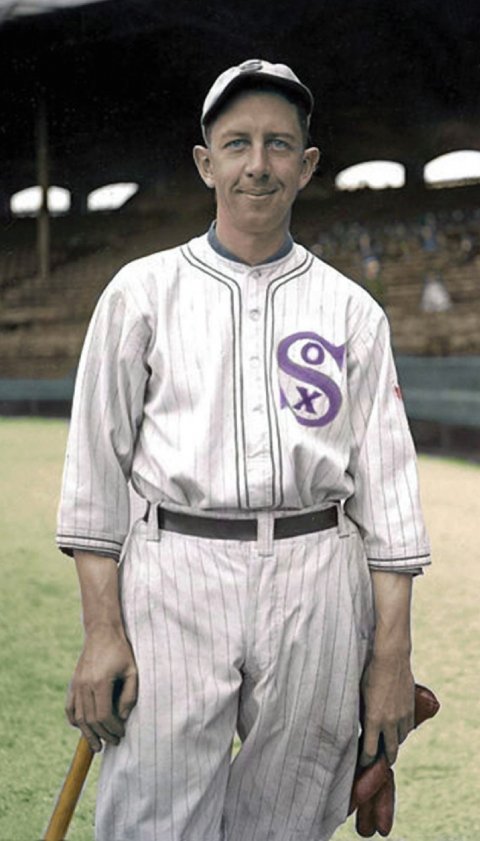Happy Birthday to the late and great Hall of Fame Second basemen Eddie Collins. If not for Rogers Hornsby, Eddie Collins would be the greatest second baseman ever to play.
Career Statistics (1906-1930):
.333 BA, 3,315 HITS, 47 HR, 1,299 RBI, .424 OBP, 1,821 RUNS, 741 SB

Eddie Collins was a terrific place-hitter, slick fielder, and smart baserunner; those three attributes made him the perfect player for The Dead Ball Era. He wasn’t one of those players who dropped everything as a young kid to work and play baseball when he had free time; Collins graduated from Columbia University, an Ivy League school. Despite only standing at 5′ 9″ and 175 lbs, he batted left-handed and developed a strong batting eye, aiming at outside pitches to the opposite field. Also, despite needing more quick feet, Collins became a great baserunner by studying how pitchers handled the ball for specific pitches and how they looked at runners.
Over his 25-year career with the Philadelphia Athletics and Chicago White Sox, Collins left his mark on the game.
- Led league in Runs three years in a row (1912-1914)
- Led league in Stolen Bases four times
- 1914 MVP
- Six-time World Series Champion
- MLB record with 512 Sacrifice Bunts
- One of 31 players to appear in MLB for four decades
- Most career Assists (7,630) and Games Played at Second Base.
It’s also worthy of note that Collins missed the final 16 games of 1918 and enlisted military; however, WWI ended soon after, making him available for 1919. Even as he got older and the game shifted away from the Dead Ball Era, Collins stayed true to himself being a great leadoff hitter; career-wise, he Walked over three times as much as he struck out. With almost 10,000 At-Bats, he maintained a lifetime of .333/.424 AVG/OBP. Defensively, he was as good at Second Base, having the most Assists and second most Putouts of any Second Basemen all-time. He ended his career in 1930 and left the game with six World Series rings.
In 1999, he was ranked #24 on The Sporting News list of the 100 greatest ball players. Eddie Collins’s career shows how important a player’s cerebral part is. Collins wasn’t the biggest, fastest, or most gifted, but he used his smarts to fully understand the game and stick to what made him the best.
References:
- Eddie Collins Career Statistics via Baseball-Reference: https://www.baseball-reference.com/players/c/collied01.shtml
- Mittermeyer, Paul. Eddie Collins via SABR: https://sabr.org/bioproj/person/eddie-collins/


By the way, Eddie Collins was not the ONLY player to steal 5 bases in a game. 5 is not even his biggest game. Twice Eddie stole 6 bases in one game.
Billy Hamilton stole 7 bases in a game in 1894, and 3 other guys each had 6 stolen bases in a game, The first three are Carl Crawford on May 3, 2009, Eric Young on June 30, 1996 and Otis Nixon on June 16, 1991.
LikeLiked by 1 person
Thanks for adding that, didn’t not know that.
LikeLike